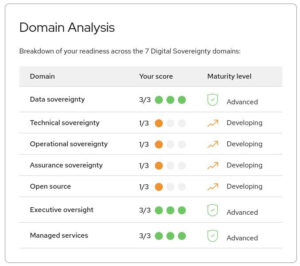FOSS Week in Review
Good news & bad on the patent front
This week we received some good news and bad on the continuing patent wars.
First the bad news.
Down in the northeast Texas town of Marshall, an eight person jury has found that online retailer Newegg infringed on a patent held by TQP Development because they mixed the use of SSL and RC4 on their websites. The jury awarded $2.3 million, less than half of the $5.1 million that TQP’s damage expert had thought due.
Even though Newegg had a strong case, it’s not that much of a surprise that they lost, not in Marshall, where juries are infamous for siding with the plaintiffs on patent cases. Often these judgments are overturned on appeal. Make no mistake about it, Newegg’s attorney Lee Cheng plans to appeal. He made that very plain to Joe Mullin who covered the trial for Ars Technica:
“‘We’re certainly very disappointed,’ said Cheng. ‘We respectfully disagree with the verdict that the jury reached tonight. We fully intend, as we did in the Soverain case, to take this case up on appeal and vindicate our rights.’…
“All Newegg cases are budgeted for appeal from the start, Cheng said. Appellate lawyer Ed Reines, who represented Newegg in its other two patent appeal wins, had been present in the courtroom for much of the TQP trial.”
Soverain was a patent troll that claimed to hold three patents that gave them ownership of the shopping carts used by nearly all online vendors. In 2011 Newegg was ordered to pay them $2.5 million dollars in a case that was also heard by a Marshall jury. Early this year, Newegg won that case on appeal, effectively putting Soverain out of business. It also wiped-out judgments the troll had received against Victoria’s Secret and Avon amounting to $18 million plus a continuing royalty of 1%.

On Sunday, Forbes reported that FindTheBest, an online comparison shopping site, had managed to have a patent being used against it invalidated in federal court. In this case, Denese Cote, a federal judge in N.Y. state, found in favor of FindTheBest and invalidated the patent.
We may hear more about this case later. After the plaintiff, Lumen View Technology LLC, demanded $50,000 from FindTheBest for infringing their patent, the site filed suit against the patent troll under the RICO act.
“Back in September, FindTheBest filed a civil lawsuit under the Racketeer Influenced and Corrupt Organizations (RICO) Act and other state laws against the parties involved in the patent litigation brought against them. FindTheBest claimed that Lumen and the other parties illegally violated the RICO Act by engaging in mail fraud, wire fraud and extortion. The defendants listed in that case includes Lumen, the patent co-inventors Eileen C. Shapiro and Steven J. Mintz and the shell companies created by the patent co-inventors: Dalton Sentry LLC, DecisionSorter LLC and The Hillcrest Group.”
Their win against Lumen in the patent case doesn’t mean FindTheBest is going to drop the racketeering case against the patent troll.
“‘We believe that this decision furthers our RICO case and we fully intend to continue pursuing that case and bring to light the extortion tactics used by Lumen View,’ said Hillary Foss, senior marketing associate at FindTheBest, in an interview with FORBES.”
We find it very heartening that some firms are now fighting back rather than rolling over when the patent trolls come knocking. We especially like the hardball route being taken by FindTheBest. After all, when we were growing up we were taught that the best defense is a good offense.
Snowden’s “doomsday” cache

Evidently, this “doomsday” cache includes names of active intelligence personnel working both for us and our allies. This information is based on interviews with “seven current and former U.S. officials and other sources briefed on the matter.” The NSA and the U.S. Office of the Director of National Intelligence “declined to comment.”
According to the Reuters story, this information is not only super encrypted but requires multiple passwords as well. The passwords are being held by at least three different people. The cloud storage is configured as to make these passwords valid for only a short time each day.
“‘If anything happens at all to Edward Snowden, he has arranged for them to get access to the full archives,’ [Glenn] Greenwald said in a June interview with the Daily Beast website. He added: “I don’t know for sure whether has more documents than the ones he has given me… I believe he does.”
Greenwald is the reporter who met with Snowden in Hong Kong and reported on the leaked documents for the Guardian.
Meanwhile, it appears as if the Snowden saga has inadvertently come to the aid of Julian Assange, according to an article published Monday by the Washington Post.
“The Justice Department has all but concluded it will not bring charges against WikiLeaks founder Julian Assange for publishing classified documents because government lawyers said they could not do so without also prosecuting U.S. news organizations and journalists, according to U.S. officials.”
Evidently, the publication of classified NSA documents leaked by Snowden has caused the DOJ to take a new look at their claim that Assange is not really a journalist and prosecuting him might leave them open to being forced to prosecute journalists who made Snowden’s information available.
“‘The problem the department has always had in investigating Julian Assange is there is no way to prosecute him for publishing information without the same theory being applied to journalists,’ said former Justice Department spokesman Matthew Miller. ‘And if you are not going to prosecute journalists for publishing classified information, which the department is not, then there is no way to prosecute Assange.’
“Justice officials said they looked hard at Assange but realized that they have what they described as a ‘New York Times problem.’ If the Justice Department indicted Assange, it would also have to prosecute the New York Times and other news organizations and writers who published classified material, including The Washington Post and Britain’s Guardian newspaper, according to the officials, who spoke on the condition of anonymity to discuss internal deliberations.
If we were Assange, however, we would wait until we received further assurances, both from the U.S. and Sweden, before allowing ourselves to be shipped off to Stockholm for questioning.
Mir to be default in Ubuntu 14.10
Softpedia reports that Mir and Unity8 will be default in Ubuntu 14.10.
“‘Going forward we are expecting to see Mir being part of the default display stack in 14.10 and following releases, where the key focus is to bring the vision of convergence to our users.’
“The received feedback puts us in a strong position to align with our partners on our shared goal of providing the next generation of user experience on top of Mir,” said Oliver Ries on the mailing list.
Oliver Ries is, among other things, the Director of Mir and Unity.
Open sourcing Winamp?
We told you in our last FOSS Week in Review that AOL is shutting down Winamp on December 20. On Monday, we learned from Ars Technica that some users of the software have set up a website and are petitioning AOL to open source the code.
“‘The history of digital music started with Winamp,’ says the group, which includes nine developers who have pledged to improve Winamp if the source code is released. ‘Our goal is to convince Nullsoft [the AOL subsidiary behind Winamp] to release the Winamp source code and we will take it further in an open-source way.'”
As of noon today, the petition has picked up 37,795 supporters.
Worm hits x86 Linux and embedded devices
There’s a worm in the wild that targets x86 computers using Linux and PHP. This news comes to us from Symantec by way of PCWorld. So far the only version spreading is aimed at Linux PCs. However, according to Symantec there are also versions of the malware for ARM, PPC, MIPS and MIPSEL.
Especially worrisome to security folks is that this exploit could be used against embedded devices, such as some routers.
“The firmware of many embedded devices is based on some type of Linux and includes a web server with PHP for the web-based administration interface. These kinds of devices might be easier to compromise than Linux PCs or servers because they don’t receive updates very often…
“‘Many users may not be aware that they are using vulnerable devices in their homes or offices,’ the Symantec researchers said. ‘Another issue we could face is that even if users notice vulnerable devices, no updates have been provided to some products by the vendor, because of outdated technology or hardware limitations, such as not having enough memory or a CPU that is too slow to support new versions of the software.'”
You can keep up with news of interest to the FOSS community by following our newsfeed available on Facebook, Twitter and Google+.
That does it for this week. Until our next Week in Review, may the FOSS be with you…




















Ok so my opinions on the whole patent-troll issue is: enough is enough, its to the point where a company or person attempting to start a company has to worry more about being sued than about natural competition! I can understand wanting to be paid for a slogan, an icon, a catch-phrase, or an actual image that came from inside your head, but a lot of these companies are just trying to get money, for the most ridiculous types of lawsuits possible! (The semi-colon in THEIR logo is in the SAME position as OURS…so they have infringed on our patent!) I mean really?…does not the government have the ability to just squash these kinds of foolish suits? There are so many other more important things going on in this country, and worldwide for that matter than who’s imposing on who’s patent! And the more these companies take part in these kinds of lawsuits, the more it degrades business as a whole, especially the technology sector, where innovation is being st4rangled because of fear of being sued for using the same color LED as another manufacturer! Where does the insanity end? when do the pundits, the judges, the people who have COMMON SENSE put an end to this crap? And then they wonder why a lot of corporations move their operations overseas? leaving U.S. workers with no jobs? @Who wants to operate in a country where your every move might be cause for a lawsuit? It’s pathetic, and until the powers that be decide to do something about it…it will continue, and it will also continue to make the U.S. business world look like a circus. As for the Edward Snowden issue, while I am all for freedom of speech, and not being governed by an iron-fisted government, there’s also the view that there are people out there who’s lives are riding upon maintaining secrecy, and anonymity, and for him and others to “play” with these people’s lives just to prove a point? well it just portrays things as these people’s lives are not worth anything, which is far from it. And finally while I might be a little concerned about this so-called ‘vulnerability” for Linux x86 machines? I’m not TOO concerned, because I don’t rely on just one source for protection, and knowing what I know of scripts and taking care of Linux machines, I don’t think its too much of a concern..for ME anyway….can’t speak for others!!
Isnt the ‘worm’ actually a problem with PHP and not the Linux kernel?
Instead of being Linux worm it’s just a PHP worm.